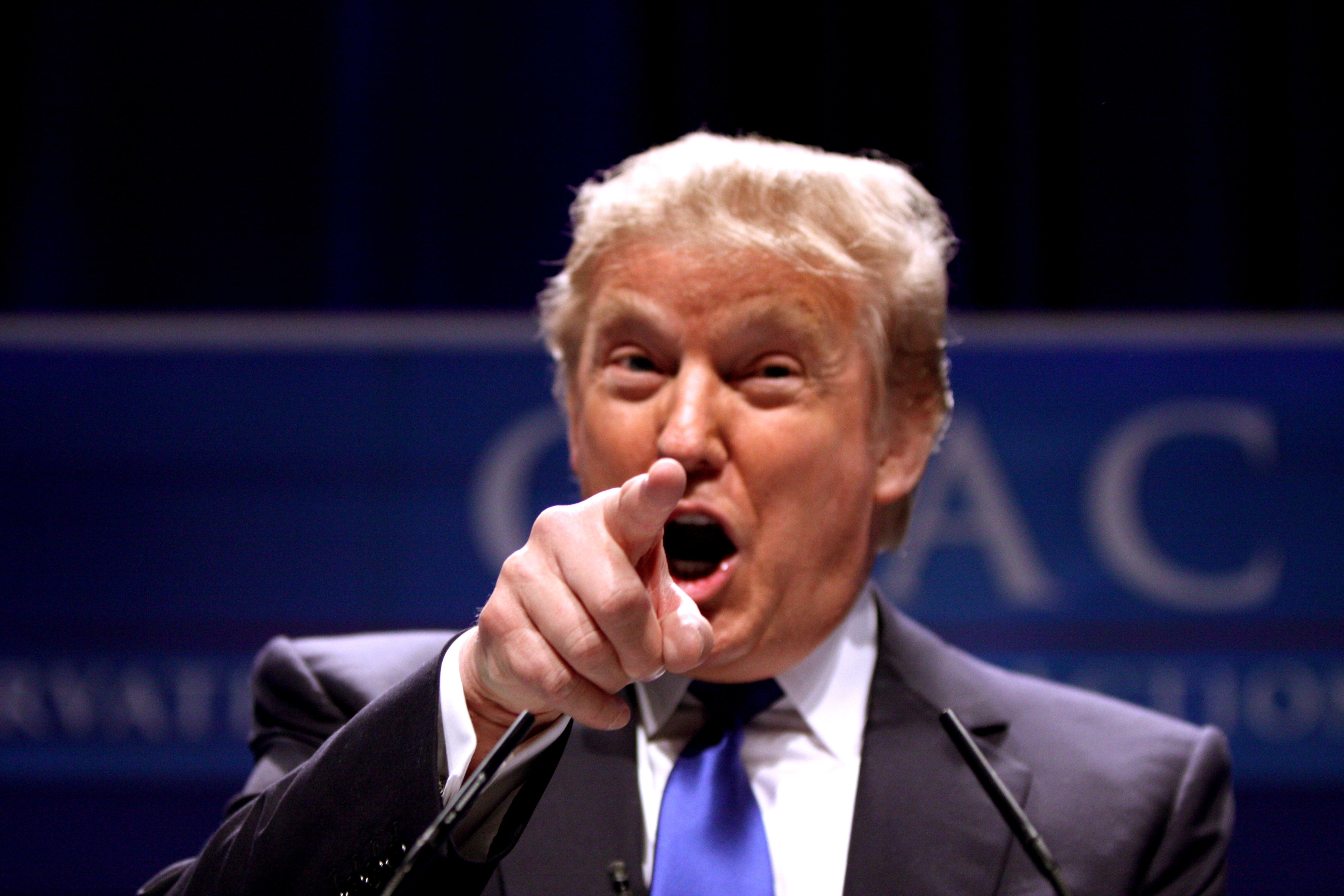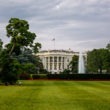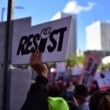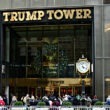Our Dishonest President
The Los Angeles Times Editorial Board
Introduction by Davan Maharaj and Nicholas Goldberg
Berkeley: Heyday, 2017
On January 27, 2017, the Urban Dictionary added a new word: “Trumpion: A die-hard follower of Donald Trump.” The Trumpions loyally follow their president in word and in deed, defending his ever-changing manipulations of alternative reality and outright native lies. The Trumpions must possess psychological resources that most of us do not. Their capacity for denial, delusion, self-deception and, ultimately, self-sabotage and destruction, is terrific, just huge, the greatest any die-hard follower has ever had. They will believe anything for and about “their” president—he who stars daily in “@realDonaldTrump.” And those who are not Trumpions have found easy refuge in their own version of denial: Trump is their president, not ours.
The Los Angeles Times editorial board rejects this new world order of “theirs” versus “ours.” In a new collection, Our Dishonest President, published by Heyday Press on Independence Day 2017, the editorial board made a serious grammatical choice. It is not “a” dishonest president; some abstract, indefinite leader. It is not “the” dishonest president; a determinate, particular type and person. (Indeed, in an interview with The New York Times, Trump recently referred to himself as “the president”—Jimmy Hoffa style, employing the third-person singular.) It is our president, we the people who live in this land that values, above all, democracy—“life, liberty, and the pursuit of happiness.”
The L.A. Times editorial board urges its readers to reflect on the dismantling of American democracy under Trump’s reign. These times demand serious responsibility, agency, and activism, if not revolution. Trump is “our” president and it is our duty, writes the board, “to rise from our slumbers, to shrug off indifference, to stand up and speak out.” The LA Times began “standing up and speaking out” on April 2, 2017, with the publication of six editorials gathered together in this beautiful, slim volume whose type, ironically (and I can only imagine intentionally) is Trump Medieval. This font is everything Trump is not. I quote from “A Note on Type”: “Pleasing to the eye, it is a font of balance and serenity whose proportions and aesthetic appeal are widely admired by typographic connoisseurs the world over.”
The editorial board’s mission is a clarion call to save democracy—its institutions and media, laws and courts, traditions and electoral processes, federal agencies and intelligence community—from the malignant narcissism, authoritarianism, and conspiracy of this “imperial presidency.” In each column, readers become aware of the myriad political and personal dangers that Trump—the demagogue, rhetorician, brand and hypercommodity, “gullible tool of liars,” and “liar in chief”—poses to human and civil rights: as if it were not enough that Trump is a threat to the planet, to families and education, to justice and equality, to America’s “moral standing in the world.” The L.A. Times’s collection redirects our attention to the real catastrophe—Trump himself. It is worth quoting a long passage, which not only explains why Trump, the symptom and the man, should be feared but also illustrates the masterful and passionate prose that infuses this modern-day pamphlet:
What is most worrisome about Trump is Trump himself. He is a man so unpredictable, so reckless, so petulant, so full of blind self-regard, so untethered to reality that is impossible to know where his presidency will lead or how much damage he will do to our nation. His obsession with his own fame, wealth and success, his determination to vanquish enemies real and imagined, his craving for adulation—these traits were, of course, at the very heart of his scorched-earth outsider campaign; indeed, some of them helped get him elected. But in a real presidency in which he wields unimaginable power, they are nothing short of disastrous.
The disaster began before Trump was Twitter-President-in-Chief, Conspiracy Theorist par Excellence. A tweet from November 6, 2012, provides evidence of Trump’s long-standing investment in untruth:“The concept of global warming was created by and for the Chinese in order to make U.S. manufacturing non-competitive.”
The concept of “@realDonald Trump” might appear paradoxical. But if we replace Donald Trump with the word “liar” and ask who is the real liar—“our dishonest president”—we know the answer. But then again what does it mean to be a “real” liar—to be a genuine, authentic, self-conscious liar? I’m not sure the LA Times editorial board tackles this question or if it is prepared to argue that Trump lies, given his slippery control over signifying systems and his tenuous relation to reality. As the title of this collection suggests, the writers prefer the adjective “dishonest” over “lying.” The rhetorical effect of this choice is interesting. The word “dishonest” calls forth (of course) the notion of honesty. To be dishonest is to lack honesty, to be the opposite of (the various meanings of “dis”) honest. Americans historically have valued honesty in their political leaders. What might be disruptive about the Trump effect is that he disavows this tradition of honesty, or at least its pretense.
It may be one thing if Trump lies, but his affirmation of dishonesty as a technique of political rule is obscene and indecent—ironically, one of the meanings of the word “dishonest.”
The editors of Our Dishonest President do acknowledge that many politicians before Trump—Clinton, George W., even Obama, lied. Political theorists before and after Machiavelli have recognized the necessity of this ethical waywardness. As they write: “Donald Trump did not invent the lie and is not even its master. Lies have oozed out of the White House for more than two centuries and out of politicians’ mouths—out of all people’s mouths—likely as long as there has been human speech.” This is a reductive simplification and another essay is required to explain how lying operates in politics, what the intellectual historian Martin Jay has named “the virtue of mendacity.” Trump the liar is not an exception nor is he an exceptional president in this respect. Rather, Trump’s reckless disregard of truth, his “easy embrace of untruth,” marks the spot of danger and catastrophe for and to American citizens:
He is a stranger to the concept of verification, the insistence on evidence and standards of proof that apply in a courtroom or a medical lab—and that ought to prevail in the White House. . . Our civilization is defined in part by the disciplines—science, law, journalism—that have developed systematic methods to arrive at the truth. Citizenship brings with it the obligation to engage in a similar process. Good citizens test assumptions, question leaders, argue details, research claims.
One could debate the editors’ rather limited and “unmodern” notion of scientific and positivistic truth. But this is not the point. The writers revive an old tradition of the Enlightenment exemplified by Immanuel Kant and Jean-Jacques Rousseau, who honored critical thought and self-reflection as much as they abhorred ideological bias and prejudice. Rousseau’s Confessions, some claimed, sparked the French Revolution. Kant famously explained the gifts and duties of enlightenment in his 1784 essay “What is Enlightenment?”:
Enlightenment is man’s release from his self-incurred tutelage. Tutelage is man’s inability to make use of his understanding without direction from another. Self-incurred is this tutelage when its cause lies not in lack of reason but in lack of resolution and courage to use it without direction from another. Sapere aude! “Have courage to use your own reason!”—that is the motto of enlightenment.
Our Dishonest President demands anew the ultimate Enlightenment obligation: sapere aude. To be a free citizen in a democracy is to be freed from unreasoned and uncritical obedience to a dishonest regime. The LA Times editorial board is among the first to resist Trumpions thus: “Investigate. Read. Write. Listen. Speak. Think. . . . To defend freedom, demand fact.” Once upon a time in America, books were sold at gas stations, grocery stores, pharmacies, right at the cash register. It is time that happens again. Let it begin with Our Dishonest President so that we the people, all of us, read, write, listen, speak, think.
Ramona Naddaff teaches philosophy in the Rhetoric Department at the University of California, Berkeley, where she is director of the Art of Writing program. She is also an editor and director of Zone Books, New York.







I don’t usually feel compelled to comment publicly on our political condition, but currently this country needs more sane people to guard our freedoms and expose the wave of hypocracy taking over our government.